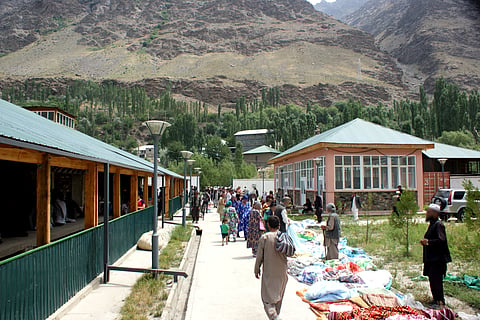

A high-level delegation from Tajikistan traveled to Kabul on Saturday, marking the first senior-level engagement between the two governments since the Taliban retook power in 2021. The visit could signal a potential shift in Tajikistan’s long-standing opposition to formal engagement with the Islamic Emirate.
According to Afghan media, officials from Tajikistan’s Ministry of Foreign Affairs and security agencies held talks with Taliban authorities on expanding bilateral ties. Among the topics discussed was the status of the Afghan Embassy in Dushanbe, which remains controlled by diplomats appointed by the former Afghan government.
Afghan sources reported that discussions included the possibility of transferring control of the embassy to the Taliban government—an issue that has remained unresolved for three years. In 2023, Kabul attempted to assert authority by sending a representative to assume the post, but was rebuffed when former ambassador Mohammad Zahir Aghbar tore up the credential letter from the Islamic Emirate envoy.
The Afghan consulate in Khorog, a Tajik border town, was handed over to the Taliban earlier, though the Tajik government never publicly acknowledged the move. The consulate is believed to be operating at limited capacity, especially after an avalanche struck the region shortly before the handover.
Tajikistan has been the most outspoken Central Asian critic of the Taliban. Its secular government has historically opposed the movement both politically and along ethnic lines, as relations between the Taliban and Afghanistan’s Tajik minority have long been strained. President Emomali Rahmon has repeatedly labeled the Taliban a “regional threat” and vowed not to recognize or engage with the group.
However, the regional landscape has shifted. Russia, China, Iran, India, and all other Central Asian states have moved toward pragmatic engagement with Kabul, expanding economic and security ties. With Dushanbe now isolated in its hardline stance, Saturday’s meeting may indicate that Tajikistan is reassessing its approach and moving toward a gradual normalization of relations.